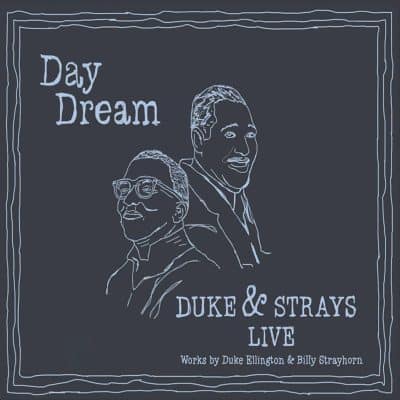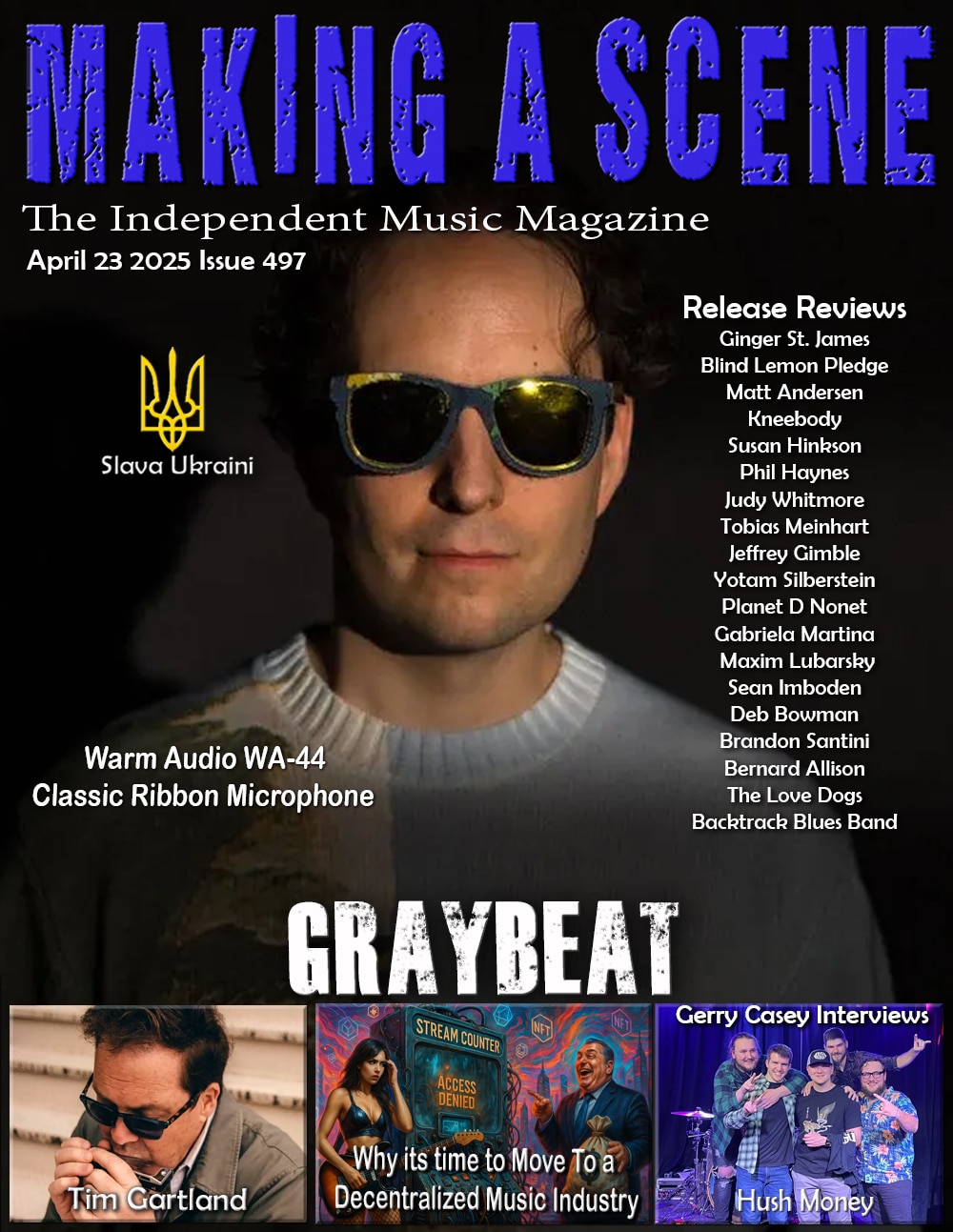Day Dream Duke & Strays Live (2 CDs)

Day Dream
Duke & Strays Live (2 CDs)
Corner Store Jazz
Duke & Strays Live from the trio, Day Dream, is our third entry for the adventurous and oft-philosophical drummer and composer Phil Haynes on these pages. No artist has three more unlikely albums reviewed in a relatively short space of time. No Fast Food’s Coda is Haynes’ trio with Dave Liebman and bassist Drew Gress. Put that squarely in the avant-garde. His retrospective 3-CD set, 4 Horns and What, The Complete American Recordings is also edgy, an avant compact brass band with a only a few shades of NOLA. Note, we haven’t covered it, but Haynes also has a set of Americana recordings with his band Free Country. Day Dream’s Duke & Strays Live is the conventional piano-bass-drum trio playing the conventional music of Duke Ellington and Billy Strayhorn adventurously live at Bucknell University where Haynes resides as a longtime faculty member. Again his most trusted compadre, Gress, is the bassist while central Pennsylvania stalwart, Steve Rudolph, holds down the piano chair. If you weren’t expecting this from Haynes, that’s part of his approach, maintaining the unpredictable.
Again we must reference his terrific book, Chasing the Masters: First Takes of a Modern Drumming Artist, where he puts jazz artists on two tracks, the traditionalists and the modernists. He sees his own career, along the line of the book’s title, as bridging the two.It’s an interesting concept to ponder. Most would put Ellington and Strayhorn in the traditionalist camp but there are clearly aspects of Duke’s discography that lean more modern. Haynes says, “Listen agin to Duke’s “Ko-Ko.” Money Jungle with Max Roach and Mingus, his recordings with Coltrane, or many moments alone at the piano amidst his orchestra, and Ellington’s modernism becomes clear.” Although Haynes doesn’t reference this aspect, there is also clearly the element of time. Monk had an innovative approach to the piano, likely considered a modernist in his time, but many of his compositions have become ‘traditional’ jazz standards. Today’s popular jazz vocalist, who most would label a traditionalist has included material from the modernists Mingus and Sun Ra on her latest album. These examples are just the tip of the iceberg. Haynes continues, “It’s as if modernists and traditionalists share many of the very same heroes, yet draw vastly different lessons from them…Our greatest masters were frequently leaders of the avant-garde and simultaneously the leaders of their generation’s historic jazz reinterpretations.”
Even the album itself seems to merge the ‘traditional’ and the ‘modernist’ side of Ellington and Strayhorn. We have some you’d expect in “Perdido,” “Sophisticated Lady,” “Lush Life,” “Come Sunday,” and “Take the A Train” across the two CDs. Yet, we get the more obscure as well with “African Flower,” “U.M.M.G,” and “T.G.T.T.” One could argue that the trio blends the two camps as well with Haynes and Gress typically falling mostly into the ‘modernists’ track while Rudolph, a generation older, a self-professed Bill Evans disciple, holds a resume that includes his start with the Tommy Dorsey Orchestra. He has mastered the swing and the romantic.
This is the third album for the trio and who knows what the future holds given that both Haynes and Rudolph have struggled with hand injuries that limits their capabilities. Yet, Rudolph seems to be recovering and Haynes is still persevering. Rudolph has a remarkably tender touch, and his judicious use of the these gentle, but resonating chords defines his playing. Unlike some pianists who thrive on speed, and multiple notes, he always seems patient, he knows exactly what the song needs in terms of both phrasing and dynamics. While he is in complete command, he joins in the playful nature in which Haynes and Gress approach the program.
They begin with “African Flower,” taking almost an ethereal tact before settling into a relaxed pace. They lock into a joyful groove on “Perdido,” and then Rudolph’s tender solo on “Single Petal of a Rose,” is just so delectable. The bass-drum tandem join in, adhering the tune to “Sophisticated Lady,” which draws a nostalgic, but rather haunting reading. Haynes’ brush work stands out on Strayhorn’s “U.M.M.G. (Upper Manhattan Medical Group)” and his exchanges with Rudolph here are emblematic of the special chemistry between the two. Gress dazzles with his arco rendition of the indelible melody of “Lush Life,” as the trio gives that one an especially unique interpretation. They prove that they can be both delicate (“Come Sunday”) and lock into infectious, albeit at times off center swing on “Rockin’ in Rhythm” and “Take the A Train.” Through it all though, given what we’ve heard from Haynes on his past recordings, these ears are drawn to the quieter pieces, “Single Petal of a Rose,” “T.G.T,T. (Too Good to Title) from Ellington’s Second Sacred Concert, and the pensive “Little Brown Book.” Day Dream balances their wont for playfulness with respect for compositions, exactly what Haynes’ mantra is all about, bridging the two camps.
– Jim Hynes
Buy Us a Cup of Coffee!
Join the movement in supporting Making a Scene, the premier independent resource for both emerging musicians and the dedicated fans who champion them.
We showcase this vibrant community that celebrates the raw talent and creative spirit driving the music industry forward. From insightful articles and in-depth interviews to exclusive content and insider tips, Making a Scene empowers artists to thrive and fans to discover their next favorite sound.
Together, let’s amplify the voices of independent musicians and forge unforgettable connections through the power of music
Make a one-time donation
Make a monthly donation
Make a yearly donation
Buy us a cup of Coffee!
Or enter a custom amount
Your contribution is appreciated.
Your contribution is appreciated.
Your contribution is appreciated.
DonateDonate monthlyDonate yearlyYou can donate directly through Paypal!
Subscribe to Our Newsletter
Discover more from Making A Scene!
Subscribe to get the latest posts sent to your email.













































